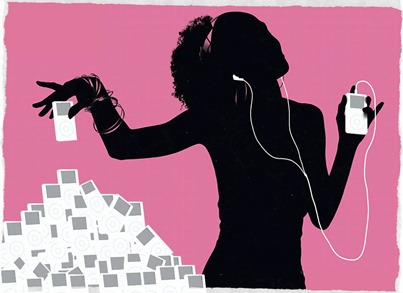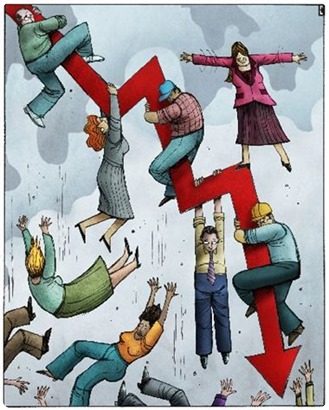 During the war as countries no longer had access to their usual trading routes through obstruction like blockades and disrupted commercial agreements, industries had to start making the same things with inferior materials, simply because the usual materials which would ensure quality and durability were out of reach.
During the war as countries no longer had access to their usual trading routes through obstruction like blockades and disrupted commercial agreements, industries had to start making the same things with inferior materials, simply because the usual materials which would ensure quality and durability were out of reach.As time progressed, an interesting thing was noted. People who bought the products for which inferior materials were used, ended up having to buy the product again after a shorter period of time than what they were previously used to. While the use of inferior materials and the shorter life-span of goods was supposed to be a ‘negative side-effect’ of the war, it turned out to boost the economy as more people were forced to buy more goods to sustain their lifestyle. After the connection was made between the inferior materials and diminished durability of goods leading to increased economic activity, it was made to be ‘a thing’.
People now started playing around and testing various materials and inputs and their durability within products to design and engineer goods with calculated life-spans. The use of inferior materials and diminished durability was no longer seen to be ‘unfavorable’, but necessary evils which our business men must employ to ensure the vitality and longevity of the economy. Planned obsolescence, had become an ethical thing to do.
Along with it, came also a culture of disposability. You could now use plastic cups, and plastic bags which you use once and then throw away. So that you can just keep on buying and disposing = it’s great for the economy!
While these manifestations may be ‘good for the economy’ in terms of manipulating consumers into extensive buying behavior, these manifestations by themselves obviously also bear great negative side-effects to the world outside of the economy. Re-producing the same products over and over simply to keep the buying going results in massive amounts of waste. Not only are we wasting tons of energy which we could have used more productively, we also end up with huge amounts of waste which accumulate in landfills and oceans. So while the economy may ‘thrive’, we are slowly but surely putting pressure on all other parts and areas of our society.
People are being put pressure on as they have to budget more carefully as goods who used to be once durable are getting a shorter and shorter life-span. What used to be a onetime big investment for which one had to go into debt, is now becoming a pattern where more people are living in debt and what they are receiving in return is of lesser and lesser quality.
Nature and the animal kingdom are being put pressure on as we pollute the environment and seize their habits for expanded production.
Our resources are being put pressure on as we exploit them at an unsustainable rate where they will soon be exhausted before we have put into place alternatives.
So all in all, the price we pay for our economy to thrive through planned obsolescence, is just not worth.
With the implementation of a Living Income Guaranteed as presented by the Equal Life Foundation, planned obsolescence itself will become obsolete within the economy.
Currently, we are placing our focus on ‘things’ to guarantee our spending, and thus to guarantee the spinning of the economic wheel. This, as we have seen, is simply ineffective and wasteful. Instead, it would make more sense to ensure spending by firstly ensuring that everyone has some level of purchasing power through having a Living Income Guaranteed in place, and secondly through placing our focus on human capital rather than repetitive buying patterns.
This practically implies that instead of depending on things to break for consumers to spend money in the economy, we move our focus to appreciating and rewarding human labour adequately and properly. This means that we can revert back a high standard of quality and durability, with prices that accurately reflect the amount of human labour that went into the product, so that we can establish wages from which people can live a dignified life.
At the moment, we are counting on low quality level goods and low quality standards of living through low wages for the economy to keep going. It does not have to be this way. If we re-arrange our values and priorities, we can still keep our economy going, but we can do it by directing our attention (and money) to quality, durability and human dignity.



































